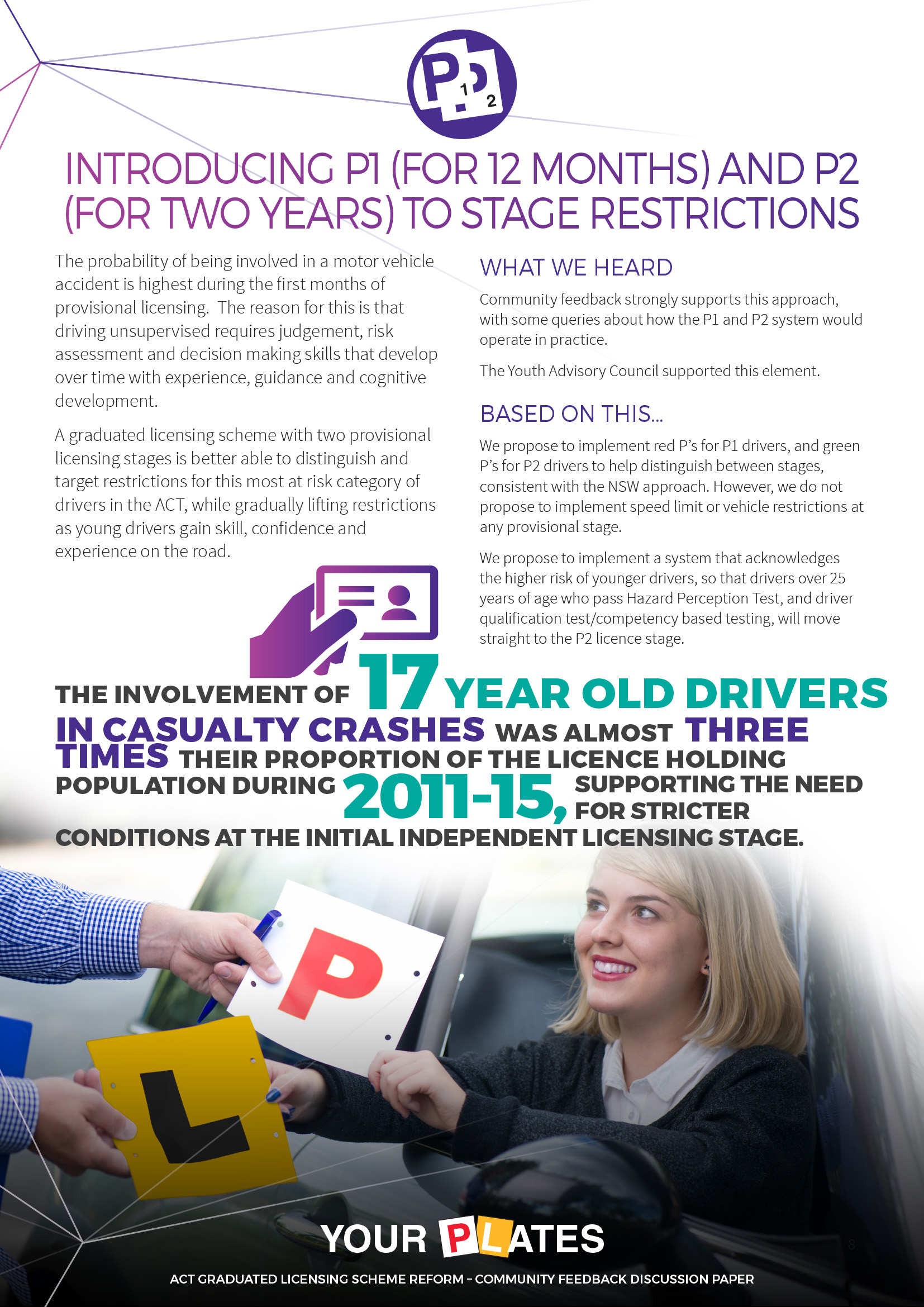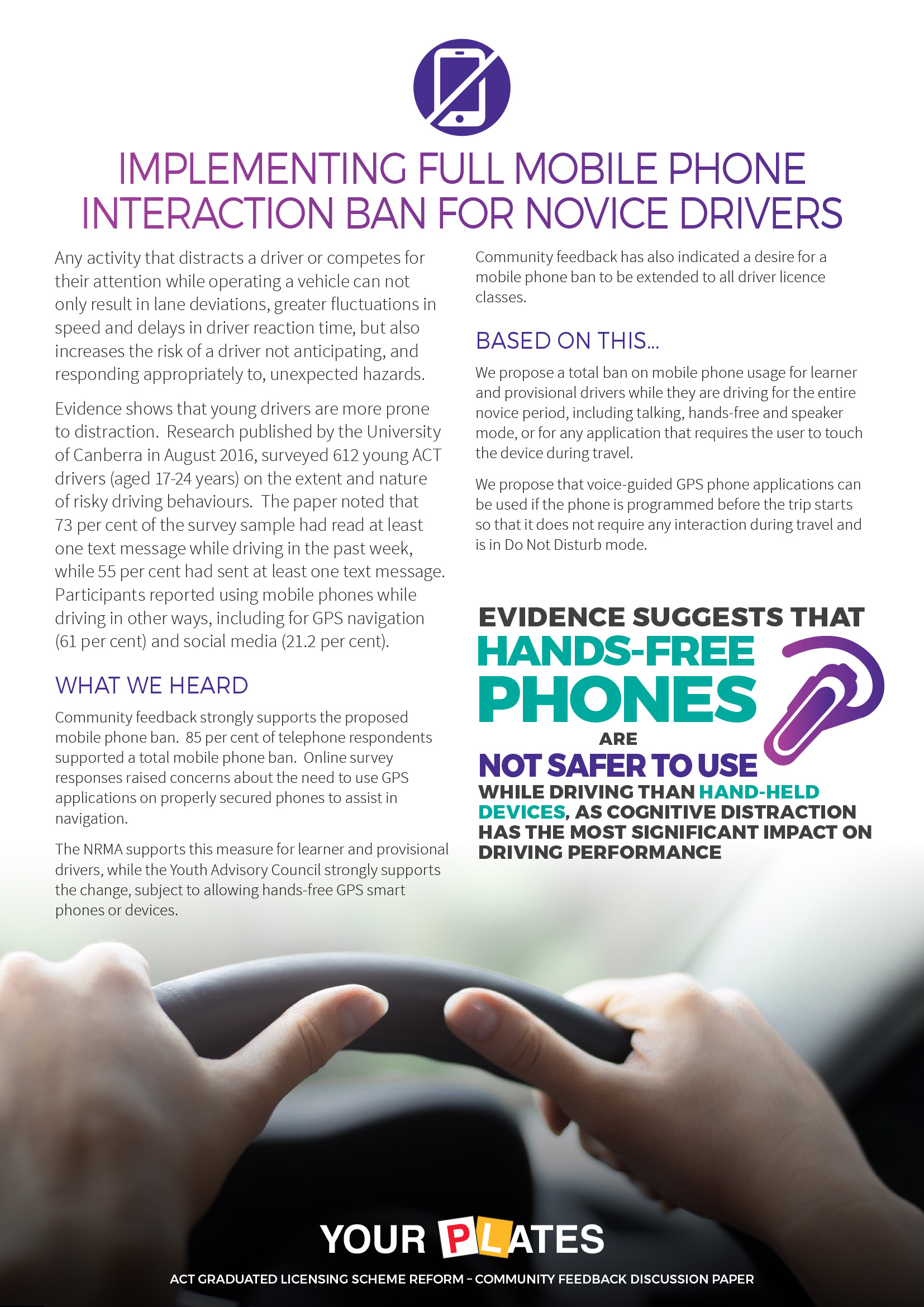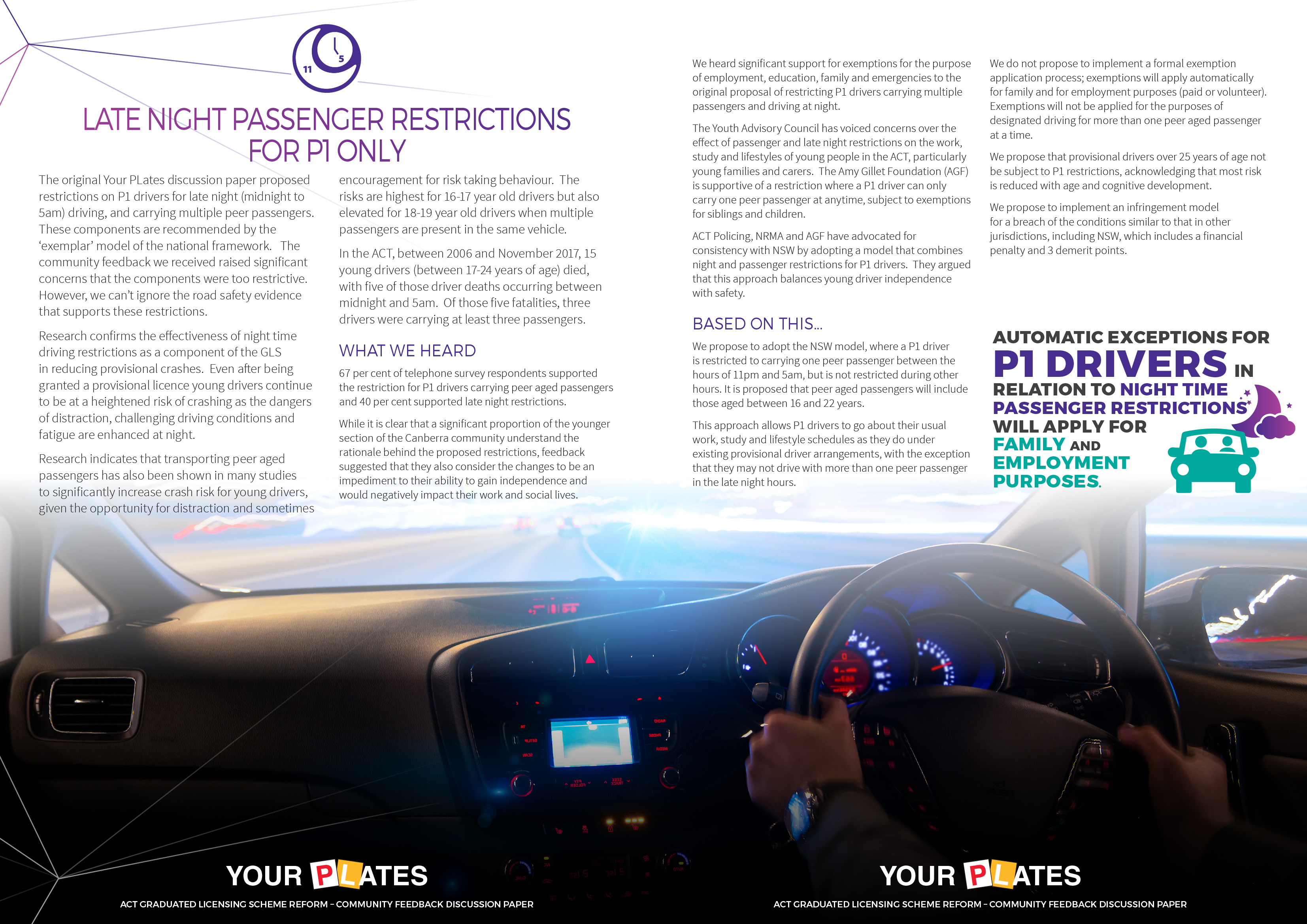Project status: Closed
Home
Implementation Update
The ACT Government is progressing the reforms for L and P drivers that we consulted with the community about last year. More information is available on www.justice.act.gov.au
The first change is a TOTAL mobile device ban from 1 July 2019 that will apply to ALL L and P drivers.
From 1 January 2020 other new changes will apply to L and P drivers gaining their licence from that date. For all updates visit www.justice.act.gov.au. Information on this YourPLates page contains information relating to the 2018 consultation only.
How you had your say:
Ensuring the safety of drivers and other road users is a top priority for the ACT Government. We're committed to achieving Vision Zero, and realising the goal of zero deaths and serious injuries on ACT roads.
This is part of an ongoing conversation with the community, while making sure that we’re both listening to the experts and realising practical road safety measures for, and together with, the Canberra community.
From 17 October to 14 November, the community had the opportunity to read the Community Feedback Discussion Paper and email feedback about the new reforms to help protect young drivers and bring us into line with other states. The Discussion Paper included amended proposals to L and P plater laws informed by extensive consultation earlier in the year.
You can find a snapshot of your comments, feedback and ideas in the What We Heard Report (Stage Two).
Planned changes include:
- Increasing minimum learning hours and the minimum learner period
- Introducing Hazard Perception Testing
- Reducing the demerit point threshold to 4 points in 3 years
- Introducing P1 (for 12 months) and P2 (for two years) to stage restrictions
- Implementing full mobile phone interaction ban for novice drivers
- Introducing late night passenger restrictions for P1 drivers only
During the initial stage of consultation, from 3 April to 22 June 2018, about the proposed changes, we:
- received community feedback from an online survey with 4,300 responses, phone survey, face-to-face discussions and a Kitchen Table Discussion Guide
- held conversations with young people during Youth Week
- received input from driving instructors and industry representatives
The largest proportion of responses were from young people, with almost 60 per cent of survey respondents aged 16-25 years.
The community has provided significant feedback about the impact some proposed measures may have on the social and work lives of young people.
We are looking at:
The ACT's Graduated Licensing Scheme has fallen behind best practice, and lags behind other jurisdictions. The ACT Government is proposing these important steps to catch up, and to implement changes that will contribute to the realisation of Vision Zero, which means zero deaths or serious injuries on ACT Roads.
Young and novice drivers are disproportionately represented in casualty crashes in the ACT. Provisional drivers represent only 6.5 per cent of all active car licence holders, but accounted for 14.3 per cent of drivers involved in fatal accidents in the five year period between 2011-15.
The involvement of 17 year old ACT drivers in casualty crashes is almost three times their proportion of the licenced population. Preliminary assessment of crash data from 2017 demonstrates that young and provisional drivers are again significantly overrepresented in fatal and injury crashes. In 2017, there were five fatal crashes and 751 injury crashes. Of those five fatal crashes, two involved provisional drivers, aged 19 and 20 years, and one involved a 22 year old provisional motorcyclist.
The proposed measures align with most components of the top level model within the Transport and Infrastructure Council endorsed Australian Graduated Licensing Scheme Policy Framework (the national framework). The intention of the national framework is to encourage and guide improvements to road safety outcomes in all states and territories. Most states and territories have implemented components of the national framework that meet the “standard”, “enhanced”, or “exemplar” models. The ACT does not currently meet the ‘standard’ model.
Changes introduced will only apply to drivers that have not yet entered that stage of the licensing system upon commencement of the new system. Changes will not be retrospectively applied.
Your views are being used to:
Your feedback is helping to inform the changes to the ACT Graduated Licensing Scheme.
FAQs
FAQs
- Why are young drivers at risk?
- Why are new rules needed for L and P drivers?
- I’ve heard the L and P system is called a graduated licensing scheme?
- How does the ACT compare to other jurisdictions?
- How will new rules and laws be enforced?
- Why is the government reforming the graduated licensing scheme now?
- It sounds like the government has made up its mind, what say can the community have?
- 100 minimum supervised hours is quite a lot, won’t that be a burden on ACT parents and families given such short driving distances?
- How will night time driving restrictions work?
- How will night time and restricted driving really be enforced?
- What about reduced speed limits for L and P drivers?
- Once the consultation ends, what are the next steps?
- How soon will measures be introduced?
- What about a graduated licensing scheme for motorcyclists?
- I see so many young people driving and texting, where are the police?
- How will these changes help keep our young drivers safe?
- Shouldn’t the rules should be consistent across the country?
- What research is behind the reform?












